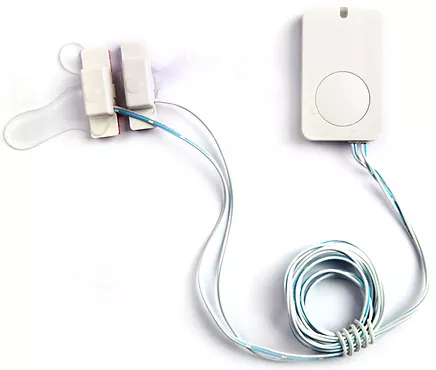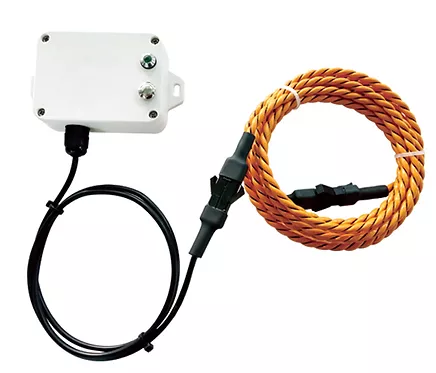Stopping Water Damage in An Apartment Ceiling
- Perceptive Things Team
- Apr 1, 2022
- 5 min read
Updated: Aug 20, 2025

If you are reading this article, it is probably because you are unfortunately dealing with water damage in your apartment's ceiling. When your ceiling starts leaking, there are a number of things you should do as soon as possible.
If you try to clean up the water too quickly without taking any precautions, you could make the problem worse. Nobody wants to have a flooded apartment or ruined personal belongings! You could even experience health problems as mold will grow if it is not dealt with swiftly and properly.
In this article, you will learn how to stop water damage in an apartment ceiling and how to prevent the issue from happening again.
How to Stop Water Damage in an Apartment Ceiling
Stopping water damage in the apartment ceiling is pretty simple, but you need to take action right away. Here are the key steps you should take the second you notice water coming from your ceiling.
Steps to stopping water damage:
Identify the cause of the leak
Stop the water source (if possible)
Use something to stop the spread
Analyze the size of the problem
Call for help
Install a water leak sensor
Identify the cause of the leak

It may sound obvious, but finding the cause of the leak should be the number one priority. If the leak is big or has been going on for a while, people might get distracted by trying to clean up the mess instead of stopping the problem from getting bigger.
Ceiling leaks pose a particular challenge, as the cause of the leak may not be easily visible. They are commonly the result of an upstairs neighbor who forgot to turn off a sink or bathtub.
Another common cause of ceiling leaks would be a burst pipe that may be hidden from view. Pipes, in particular, can wreak havoc if they are not addressed quickly.
No matter what the cause of your leak is, the first step would be to take quick action by locating the source of the water.
Stop the water source (if possible)
If you can turn off the water directly near the leak, it would be a good idea to do so. If you are renting the apartment, you may have to call a landlord or management to help you with this.
In the event that there is no obvious source of the leak or there is more than one, make sure to try and stop as many as you can at the source.
Good places to stop water are the main water valve, faucet valves in bathrooms, and maybe even sinks in other rooms with a lot of water near them.
If the leak is coming from a pipe, you will need to call a professional plumber who can stop it for you. If it comes from an appliance, unplug and turn off its water supply.
Stop the spread of water
To stop the leak, you can use anything that is large enough for the job. For smaller leaks, a towel or some old clothing might be enough to get the job done.
For ceiling leaks, in particular, a good tool to use would usually be a bowl or a bucket. If the leak is particularly large, you might even drag out a kiddie pool to help!
The larger the leak, the more important it is that you act quickly. If water starts to pool, then its weight can cause the ceiling to cave in.
Analyze the size of the problem
If you've dealt with leaks in the past, then you already have experience with this next step. You will want to analyze the size of the issue and whether you are able to handle it yourself or if you will need help.
If you are a tenant, you may want to make decisions on how to handle the issue with your property manager or landlord. Depending on how the leak started and your lease agreement, you may be held responsible if you are found to have caused the leak through negligence.
There are usually two types of ceiling leaks:
1) Minor Leaks: It happens once in a while and can be easily stopped with some towels or old clothing. This type of leak is often caused by an appliance that has somehow come loose (like a dishwasher).
2) Big Leaks: The more serious type of leak, where one drip turns into multiple drops every minute or two. This is often caused by pipes behind the ceiling getting worn out over time.
Call for help

If the leak persists or is not going away, it might be time to call a professional. Stopping water damage is their area of expertise, and they might be able to fix the leak faster than you would. They will also be up to date on local ordinances to ensure that your situation is taken care of properly.
This becomes particularly important for preventing mold growth and further water damage! Sometimes water damage results in deeper structural issues that can cost even more in repairs if they are not identified early.
Save yourself some time and headaches by calling in a professional who can get it fixed for you before it gets worse.
In case of an emergency, such as leaks related to a natural disaster, always contact 911.
Install a water leak sensor
Installing water leak sensors everywhere in your apartment complex is one of the best things you can do to protect your apartment. It also allows for easy early detection so you can take action before a problem becomes unmanageable.
Leak sensors are affordable nowadays and they come with various types of technologies for early detection. They can even detect leaks when they happen outside your house so you know when to act before it becomes worse.
There are many DIY tutorials on setting up your own water leak detection system, but if this is something that does not interest you should consider paying someone to do the job for you.

Preventing water damage with Perceptive Things®
We are passionate about helping you prevent water damage before it becomes a problem. Our water leak sensors are an affordable solution and they will notify you within minutes of a leak taking place in your apartment building.
Our most popular water leak sensors are the Droplet Duo™ and Droplet Pro™. Both of these solutions are able to call, text, or email you within just one minute of a leak!
Final thoughts on stopping water damage in an apartment ceiling
If you are facing serious water damage issues, please know that it is almost always a good idea to call a specialist for help. Ceiling damage can be very dangerous and makes it possible for the building to experience further structural issues.
Preventing water damage is always more affordable and easier than fixing it. We hope this article gives you the tools you need to protect your apartment from water damage.
Let us know in the comments, have you had to deal with ceiling water damage? If so, what steps helped you fix it?




